Contemporary poets whose work explores science and our relationship to the earth.
Just as with this program, UCS is using art as a way to engage people with science, beyond just thinking about facts and evidence. Please enjoy this video featuring a poem by Maria Melendez Kelson.
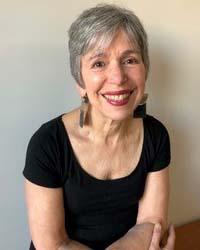
Elizabeth J. Coleman
Elizabeth J. Coleman is a poet, environmental activist, public interest attorney, teacher of mindfulness, and a poetry translator. Elizabeth is the editor of Here: Poems for the Planet (Copper Canyon Press, 2019). She is the author of two poetry collections, The Fifth Generation (Spuyten Duyvil Press, 2016) and Proof (Spuyten Duyvil Press, 2014), which was a finalist for the University of Wisconsin Press’s Brittingham and Pollak prizes, as well as two poetry chapbooks, and she translated Lee Slonimsky’s sonnet collection Pythagoras in Love (Orchises Press, 2015) into French, resulting in a bilingual edition, Pythagore, Amoureux (Folded Word Press, 2016). Her poems have appeared in many journals, including Colorado Review, Rattle, and Bellevue Literary Review, and in a number of anthologies. Elizabeth’s career for many years was as a public interest attorney. An environmental advocate, Elizabeth has also taught mindfulness for over twenty years. A graduate of the Vermont College of Fine Arts and the University of Pennsylvania Law School, she can be visited on the web at www.elizabethjcoleman.com
HERE
Listen how this planet spins with so much fin, wing, and fur.
…so loud with itself—
…not a voice, not a message,
but something like a lingering…
a reggae bassline, finding its melody
in the mellow of the soft earth’s breath
What did you think, that joy
was some slight thing?
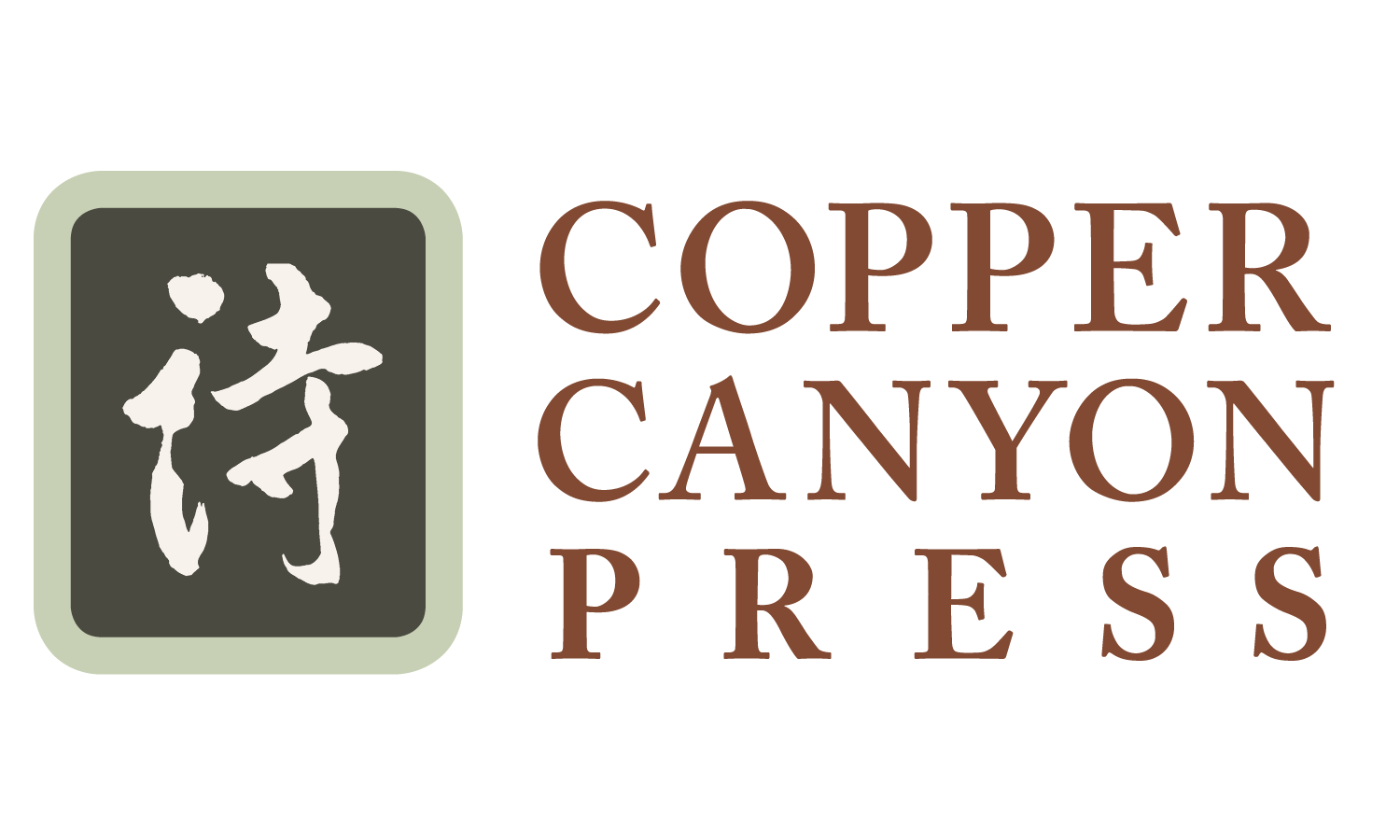
HERE: Poems for the Planet is published by Copper Canyon Press and is available for purchase on the UCS website. All royalties of the book sales benefit UCS.
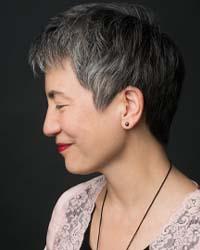
Kimiko Hahn
Kimiko Hahn is the author of ten books of poems, including Foreign Bodies (W. W. Norton, 2020); Brain Fever (WWN, 2014), and Toxic Flora (WWN, 2010). Her collections Brain Fever and Toxic Flora were both prompted by science. Honors include a Guggenheim Fellowship, PEN/Voelcker Award, Shelley Memorial Prize, a Lila Wallace-Reader’s Digest Writers’ Award as well as fellowships from the National Endowment for the Arts and the N.Y. Foundation for the Arts. She has taught in graduate programs at the University of Houston and New York University, and is a distinguished professor in the MFA Program in Creative Writing & Literary Translation at Queens College, The City University of New York. From 2016-2019, Hahn was President of the Board of Governors, Poetry Society of America. She and true crime writer Harold Schechter make their home in New York where life is dictated by their terrier Trudy.
The Nest in Winter
In the Father’s shadowy hoard
pillows belch feathers across
mattress and floors:
what was an oriental rug, now
a carpet of scat, gone-astray socks,
calendars from rescue shelters
angling for checks.
There’s nothing to toss
among the vivid tethers to
Mother. Maybe my mother, maybe Father’s.
There’s no margarine container
any less pathetic than
a netsuke from Kyoto;
no expired sardine tin less urgent
than a dozen aerograms; no
receipt less intimate
than their honeymoon photo
snapped in the local aquarium.
The adult daughter takes in
the spew,
pabulum that a bird feeds its nestling.
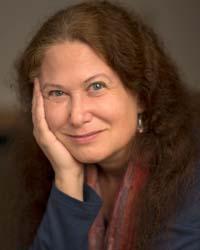
Jane Hirshfield
Jane Hirshfield's most recent, ninth book of poetry is Ledger (Knopf, 2020). Among the foremost voices for the biosphere in American poetry, she founded Poets for Science, in conjunction with the first 2017 March for Science in Washington, D.C. The project has appeared also in New York, Chicago, Portland, Cambridge, Nashville, et al. Inducted in 2019 into the American Academy of Arts & Sciences, Hirshfield's other honors include fellowships from the Guggenheim and Rockefeller foundations, National Endowment for the Arts, and Academy of American Poets. Her work appears in The New Yorker, The New York Times, The New York Review of Books, Poetry, The Paris Review, and ten editions of The Best American Poetry. A former chancellor of the Academy of American Poets, Hirshfield has been a visiting professor at Stanford University, U.C. Berkeley, and elsewhere.
On the Fifth Day
On the fifth day
the scientists who studied the rivers
were forbidden to speak
or to study the rivers.
The scientists who studied the air
were told not to speak of the air,
and the ones who worked for the farmers
were silenced,
and the ones who worked for the bees.
Someone, from deep in the Badlands,
began posting facts.
The facts were told not to speak
and were taken away.
The facts, surprised to be taken, were silent.
Now it was only the rivers
that spoke of the rivers,
and only the wind that spoke of its bees,
while the unpausing factual buds of the fruit trees
continued to move toward their fruit.
The silence spoke loudly of silence,
and the rivers kept speaking
of rivers, of boulders and air.
Bound to gravity, earless and tongueless,
the untested rivers kept speaking.
Bus drivers, shelf stockers,
code writers, machinists, accountants,
lab techs, cellists kept speaking.
They spoke, the fifth day,
of silence.
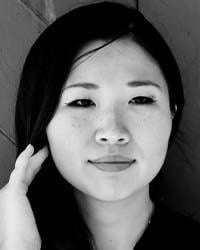
Jenny Qi
Jenny Qi is the author of Focal Point, winner of the 2020 Steel Toe Books Poetry Award. Her essays and poems have been published in The New York Times, The Atlantic, Tin House, ZYZZYVA, Rattle, and elsewhere, and she has received fellowships and support from Tin House, Omnidawn, Kearny Street Workshop, and the San Francisco Writers Grotto. Born in Pennsylvania to Chinese immigrants, she grew up mostly in Las Vegas and Nashville and now lives in San Francisco, where she completed her Ph.D. in Cancer Biology. She is working on more essays and poems and translating her late mother’s memoirs of the Chinese Cultural Revolution and immigration to the U.S.
What Grows in the Desert
My mother wanted flowers, fragrant
and lovely. So she flooded young seeds
until they boiled in midday heat,
and when they didn’t bloom, she thought
she could will blossoms with sullen silence.
My father wanted fruit trees, hardy
and useful. So he baked saplings in the sun
until they brittled into sand,
and when they didn’t ripen, he thought
he could shout them into submission.
At night, I snuck into the garden
and sang my pleas into the leaves.
Still, the gardenia blackened as if scorched,
the jasmine shot its stars into the ground,
the peaches puckered around unformed pits.
In the end, all we grew was oleander,
pink flesh burst from clay,
blowing sweet poison to the wind.
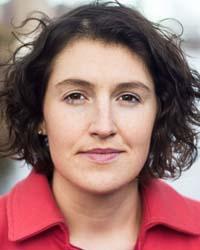
Sarah Sala
Sarah M. Sala is a queer poet of Polish-Lebanese descent. Her debut collection, Devil’s Lake (Tolsun 2020) was a finalist for a Lambda Literary Award. She is the founder of the free poetry workshop, Office Hours, and Poetry Editor at the Bellevue Literary Review. She is a clinical associate professor in the expository writing program at New York University. Her work appears in BOMB, the Southampton Review, and the Los Angeles Review.
Hydrogen
You wanna talk BANG? Hydrogen was there at 0:00 hours
in the coke-colored velodrome of dark matter.
Gasses checking gasses ad infinitum—chartreuse flare
then a deafening birth: ions of cosmos cartwheeling pink
red yellow green purple blue black in the sphere of night.
First I was a star, then a stain of water, then a kindergartner.
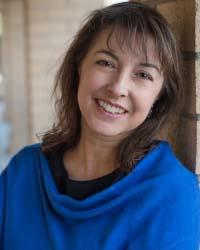
Maria Melendez Kelson
Maria Melendez Kelson is author of two collections of poetry from University of Arizona Press:
How Long She'll Last in This World (2006), and Flexible Bones (2010). She has been a finalist for the PEN Center USA Literary Award in Poetry, a two-time Honorable Mention recipient for the International Latino Book Awards, and a finalist for the Colorado Book Award. Her essays appear in Ms. Magazine, Sojourns and elsewhere, and her poetry and essays are widely anthologized, most recently in Colors of Nature: Culture, Identity & the Natural World. NPR’s American Democracy Project broadcast several of her essays on arts & activism, and she currently edits Pilgrimage, a literary magazine emphasizing the themes of spirit, witness, and place. As an independent editorial consultant, she helps new and established writers create dynamic manuscripts.